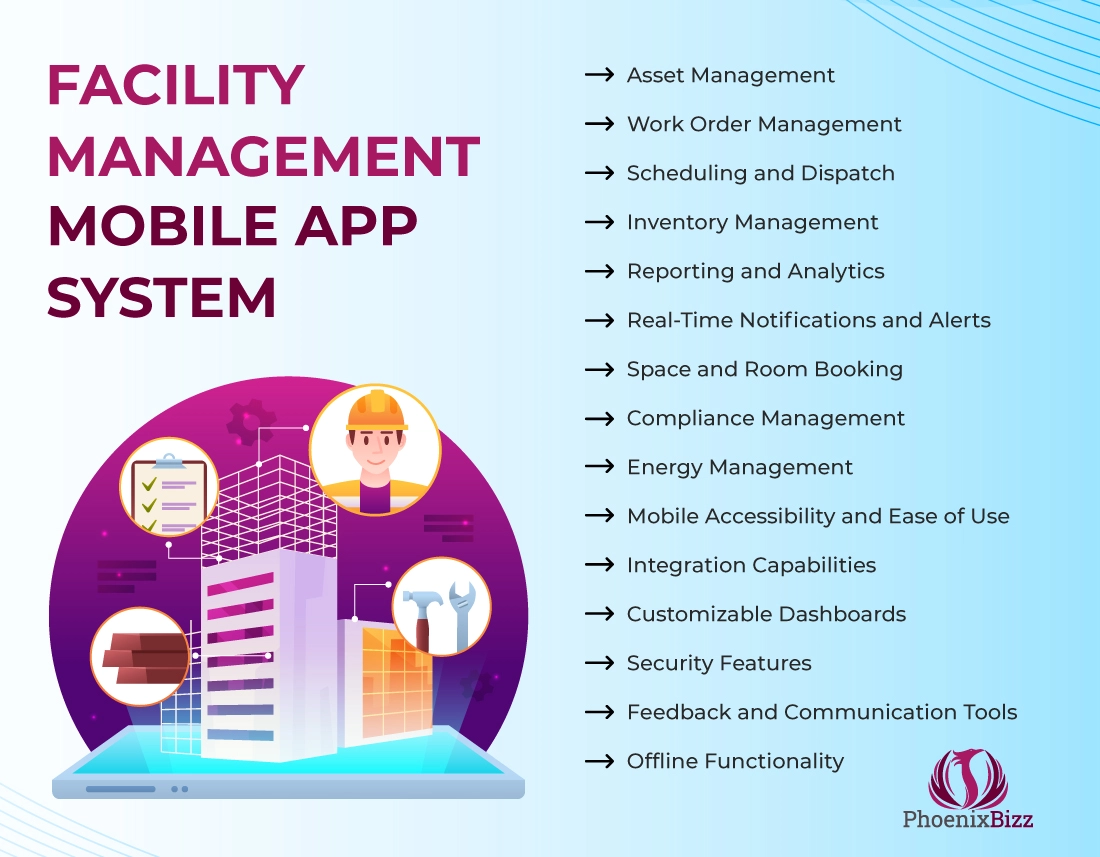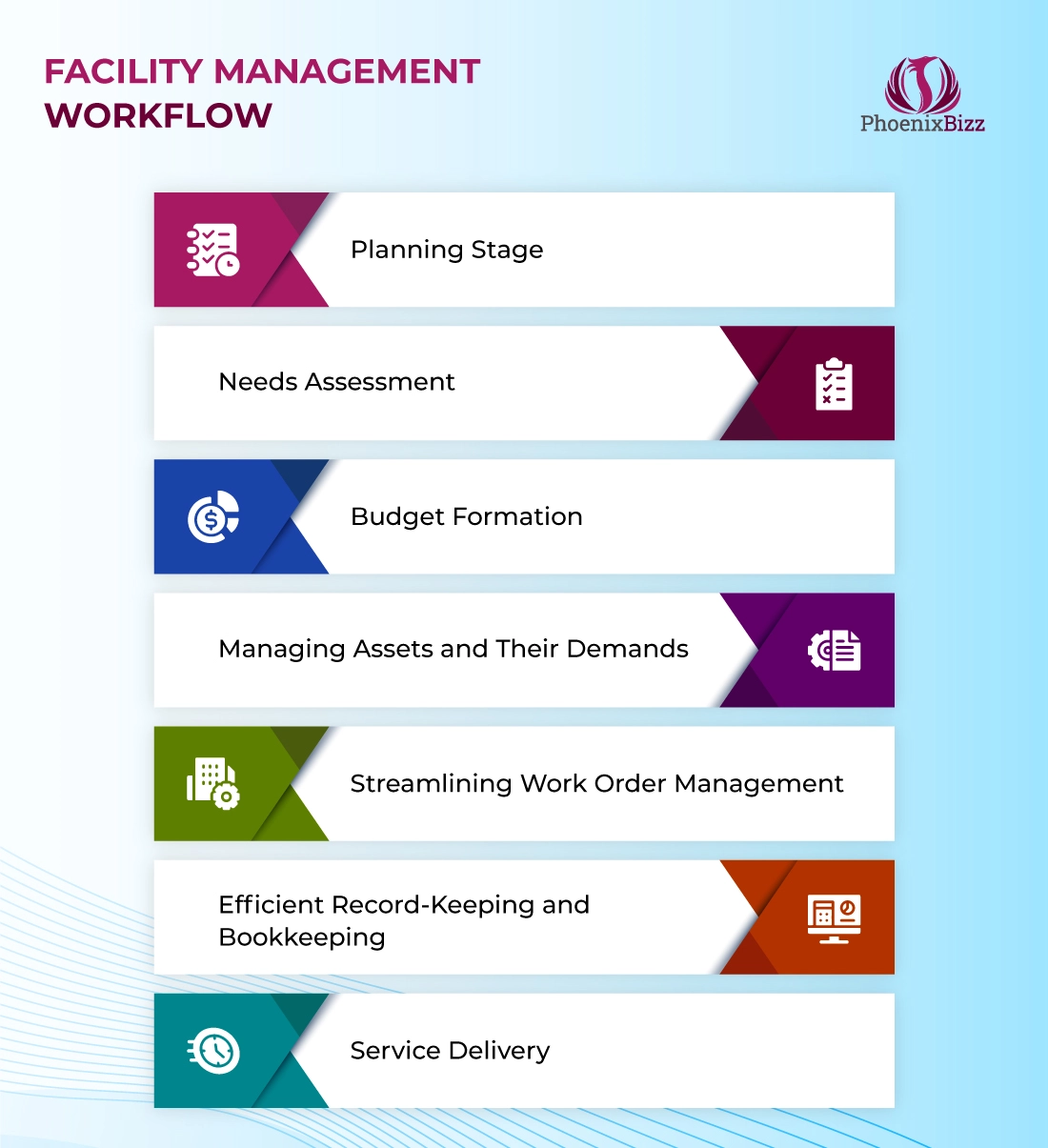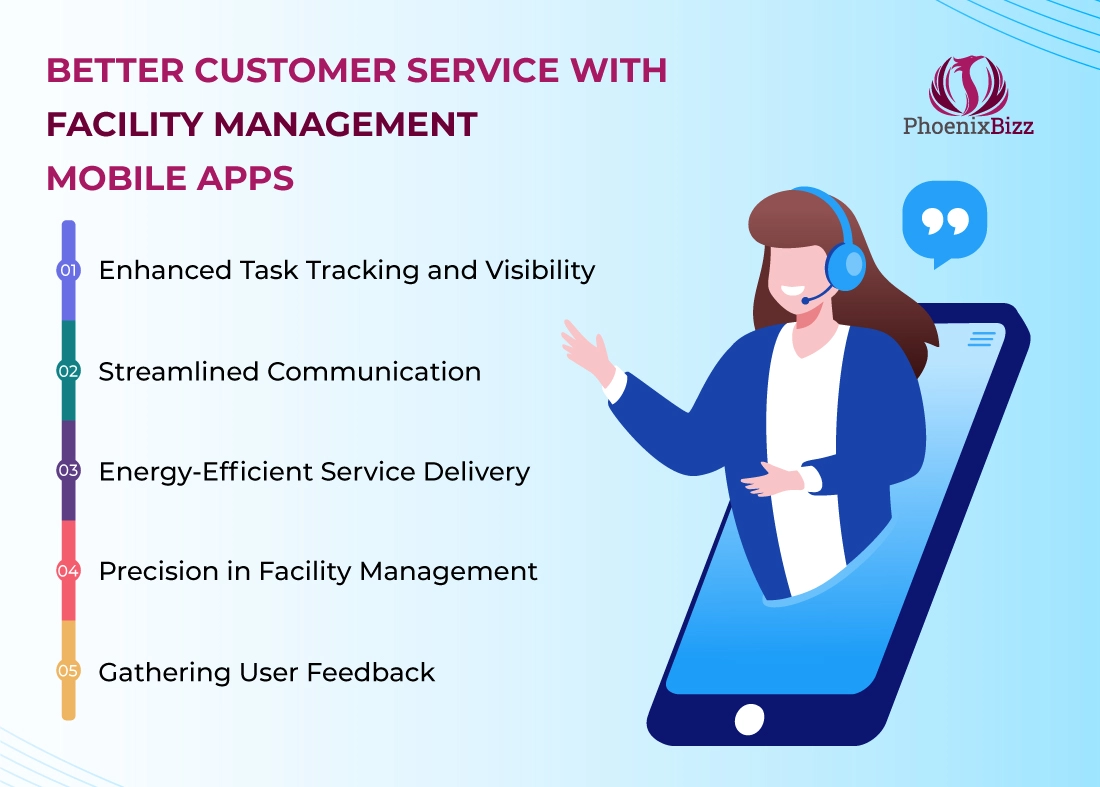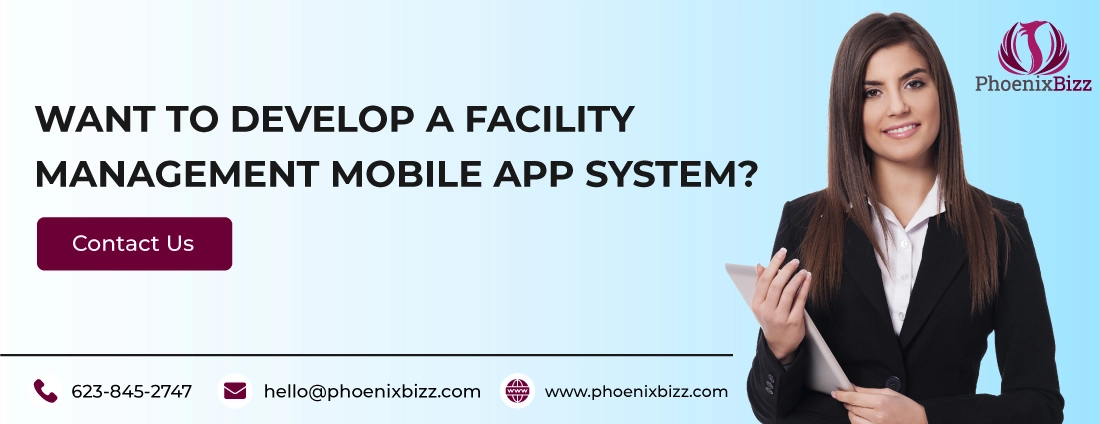December 18, 2023
By: PhoenixBizz Staff Writer
PhoenixBizz is a division of Sofvue, LLC
Printed with permission of Data Titan and Sofvue LLC
The most significant development in facility management has been the use of promising technologies to deliver impressive customer and user experience. User satisfaction is achieved when you efficiently meet their demands by providing quality facilities.
In this competitive market, businesses are leveraging high-end technologies to create facility management software, systems, and mobile apps. This not only helps in serving clients with precision, but also ensures that their everyday tasks are completed in a time-efficient manner.
The global facility management market is expected to reach 2.03 billion USD by 2030. This evolution can be improved upon when facility service management companies embrace technologies and tools that enhance the customer experience and facility management. Do you need a facility management mobile app but do not have a fair idea of how it works? This article addresses facility management mobile apps, their usage, benefits, and more.
What is a Facility management mobile app system?
In basic terms, facility management applications are developed to ease the work of facility managers. These apps use technology and innovation to speed up the workflow, better management of workers and services for higher user and client satisfaction. A facility management mobile app solution comes equipped with features like calendar for scheduling, user panel, admin panel, notifications and reminders, complaint tracker, maintenance announcements, repair orders, etc.

Facilities Management Software (FMS) is responsible for ensuring a safe, secure, scalable, and comfortable working environment. Here is what an FMS mobile app can do for companies:
1. Asset Management: The app should enable users to track and manage all assets within a facility, including equipment, furniture, and other physical resources. This could include maintenance schedules, warranty information, and repair histories.
2. Work Order Management: Users should be able to create, assign, track, and closely monitor and close work orders directly from the app. This feature should allow for categorization of issues, priority setting, and status updates.
3. Scheduling and Dispatch: For facilities with maintenance staff, the app should include a scheduling feature to assign tasks and dispatch workers efficiently. Integration with calendars and real-time updates can be very useful.
4. Inventory Management: The app should provide a way to track inventory levels of critical supplies, reorder points, and facilitate the ordering process.
5. Reporting and Analytics: Providing analytics on various aspects like asset utilization, maintenance costs, and operational efficiency can help in making informed decisions.
6. Real-Time Notifications and Alerts: The app should send real-time alerts for critical issues, maintenance reminders, and updates on work order statuses.
7. Space and Room Booking: If applicable, the app can include features for booking meeting rooms or shared spaces within the facility.
8. Compliance Management: The app should help in ensuring that the facility is compliant with relevant health, safety, and environmental regulations. This could include tracking of inspections and audits.
9. Energy Management: Features that track energy usage and provide insights into how to improve energy efficiency can be included.
10. Mobile Accessibility and Ease of Use: The app should be user-friendly, with an intuitive interface that can be easily used by all staff members, regardless of their tech-savviness.
11. Integration Capabilities: The app should be able to integrate with existing systems like HVAC, lighting controls, and other IoT devices within the facility.
12. Customizable Dashboards: Users should be able to customize their dashboards to see the most relevant information for their role.
13. Security Features: Given the sensitive nature of facility management data, the app should have robust security features to protect user data and comply with data protection regulations.
14. Feedback and Communication Tools: The app should include tools for communication between staff, management, and possibly even facility users, as well to provide feedback or report issues.
15. Offline Functionality: Considering that there might be areas in a facility with poor internet connectivity, the app should be able to function offline and sync data when the connection is restored.
With the right mobile app development company as your developer, you can create a scalable and functional application system to better manage your facility management operations. These apps are an excellent way to enhance and expand your client base and ensure quality services.
Facility management workflow
The basic structure of any service, task, or operation includes planning, budgeting, organizing, asset management, testing and feedback, and launching or releasing. Facility management is the same where businesses first create a work plan and then further diverge the structure into sub-stages. Here is how a facility management mobile application workflow might look like:

◾Planning Stage
During the initial planning phase, stakeholders and team members collaborate to define their business objectives, goals, and identify potential risks. This phase sets the stage for the project to be handed over to the Research and Development (R&D) team, which undertakes thorough research and develops a strategic plan.
◾Needs Assessment
In the realm of facility management, it's crucial for teams to ascertain the specific requirements and needs of the current facility. This step is vital as it enables businesses to incorporate these essential elements into the design of the new facility. Additionally, this phase involves the strategic prioritization of resources based on their urgency.
◾Budget Formation
Embarking on a project without a well-defined budget is akin to navigating without a compass. The purpose of the preceding stages is to lay the groundwork for devising a practical budget. Teams involved in this process must consider various usage and resource needs before finalizing the budget. For instance, when developing a facility management plan for a large commercial office building or condominium development, it's important to consider factors such as staff numbers, inventory needs, and specifics about laboratories and equipment.
◾Managing Assets and Their Demands
In the realm of facility management, a key aspect is the identification and management of asset demands. This encompasses the establishment of a facility's assets, which may include equipment, electrical systems, transportation, and more. It's also important to consider the maintenance history of assets in the existing facility.
◾Streamlining Work Order Management
This phrase addresses the question, "What is the workflow?" It involves identifying the staff, contractors, and vendors, and understanding how tasks are allocated among them. This process enables businesses to delegate tasks effectively, based on the specific skills and expertise of different parties. Additionally, monitoring the progress of work and ensuring task completion is an integral part of work order management.
◾Efficient Record-Keeping and Bookkeeping
Keeping track of past, current, and future orders or services is crucial. This record-keeping should encompass all financial aspects, including expenses, maintenance costs, and equipment expenditures. While maintaining these records is a critical component of facility management, doing it manually can be time-consuming and costly, requiring significant manpower. This is where the integration of a mobile app system becomes invaluable. Such a system can automatically store and manage all necessary information, freeing up staff to focus on other critical aspects of facility management.
◾Service Delivery
The final stage in facility management involves guaranteeing seamless and precise delivery of services. This is achieved by utilizing a range of available resources and facilities.
The facility management process outlined above is greatly streamlined with a mobile application. This app is designed with cutting-edge features and technology, significantly reducing manual labor and the need for human intervention by automating various tasks in facility management.
You may also like to read: Why Internet Of Things (IoT) Is An Emerging Buzzword In Today’s Technology?
Better customer service with facility management mobile apps
Are you curious about the role of a mobile app in enhancing customer or client service within the facility management sector? A mobile app serves as a unified hub for overseeing, managing, and executing all tasks. Let's explore how a facility management mobile app can aid businesses in meeting and exceeding customer expectations:

➤ Enhanced Task Tracking and Visibility: Take, for instance, a corporate building requiring elevator maintenance. A facility management mobile app enables employees and stakeholders to report issues and monitor the progress of repair work. This facilitates timely maintenance and keeps users informed about any delays. With such an app, tracking maintenance tasks becomes straightforward and efficient.
➤ Streamlined Communication: Facility management apps provide a direct line of communication between users and facility managers. Users can easily report issues, request services, or offer feedback through the app. This direct communication channel ensures prompt resolution of issues, thereby boosting tenant satisfaction. For example, residents in an apartment complex can quickly report problems using the app.
➤ Energy-Efficient Service Delivery: In today's world, there's a growing preference for eco-friendly facilities. Facility managers are increasingly focusing on sustainability, and mobile apps play a crucial role in this. They help in reducing energy waste, identifying areas of excessive energy use, and implementing green strategies to save energy. This approach not only appeals to environmental concerns but also reduces service costs for customers.
➤ Precision in Facility Management: Mobile apps are invaluable tools not just for clients but also for the management of facilities. They keep track of vital information like maintenance activities, user complaints, and the overall condition of facilities. This data helps managers make informed decisions regarding resource allocation, preventive maintenance, and quality service delivery, all contributing to heightened customer and client satisfaction.
➤ Gathering User Feedback: Customer feedback is essential for service improvement. Facility management mobile apps can include features for collecting user opinions on the quality of services provided. This feedback allows facility managers to identify areas for improvement and implement necessary changes. It demonstrates to customers and clients that their input is valued and plays a crucial role in enhancing the services they receive, ensuring timely quality improvements.
Maintenance of FMS mobile app
Facility management encompasses a variety of tasks aimed at creating a user-friendly experience. Regular maintenance of your facility management mobile app is essential to ensure smooth operation of all its functions. To guarantee the app's efficiency, consider the following key points:
✅ Subscribe for timely and regular maintenance updates.
✅ Employ technologies for complete data security updates.
✅ Update and backup data at regularly scheduled times.
✅ Use cloud-based accessibility 24/7
Answering most frequent questions on facility management mobile apps
What services and businesses are part of facility management?
Facility management caters to various businesses that support the functionality of diverse kinds of facilities such as office buildings, business parks, government buildings, warehouse and distribution centers, utility and energy plants, apartments, hospitals, schools, property management, etc. The list is endless.
How much does PhoenixBizz charge for facility management mobile app development?
We have designed and developed hundreds of custom software and mobile apps, and pricing is as varied as the color spectrum. A small project for us is three months. Large projects are 12+ months, and we’ve even had a few projects requiring 2+ years to develop. Our clients come with unique requirements and the exact development cost is determined after careful discussion. You can get in touch with our support team to learn more.
What features can you add to my app?
Our team can deliver highly efficient applications with various standard and advanced features. Some of our flagship features include service tracking, task management, admin panel, user panel, complaint logging sections, to name a few, and for numerous clients, we have developed patent and patent pending technologies.
Do you have access to modern technologies?
Yes, we are a leading mobile app development company with access to the latest tools and technologies. From artificial intelligence to IoT and machine learning, we employ these and other innovative tools to design world-class mobile app systems for your business.
Wrapping up
Facility management amalgamates various services to ensure safe and efficient functioning within one or more facilities. It is responsible for the effective and efficient operation of essential systems, as well as maintaining cleanliness, security, and sustainability in built environments. Services in facility management are applicable to a wide array of facilities, including commercial offices, hospitals, and residential properties. Employing a comprehensive approach that encompasses maintenance and technology integration, facility managers can create spaces that are not only safe but also responsive to the evolving expectations of occupants. The execution of these multifaceted tasks is adeptly facilitated by a facility management mobile app.
PhoenixBizz is comprised of a team of experts with decades of experience in software development. Our expertise centers on developing well-crafted solutions for small businesses across Maricopa County, and across Arizona.
PhoenixBizz, a division of Sofvue, LLC has been providing exceptional development services to small businesses for two decades. We have designed and developed solutions for companies in over a dozen states, and for over 200 projects since 2004. To learn more, contact us at 623-845-2747.
Citations
https://www.statista.com/statistics/1073572/global-facility-management-market-size/
https://www.ifma.org/about/what-is-fm/
https://www.marketsandmarkets.com/Market-Reports/facilities-management-market-1030.html
RE: 11697





